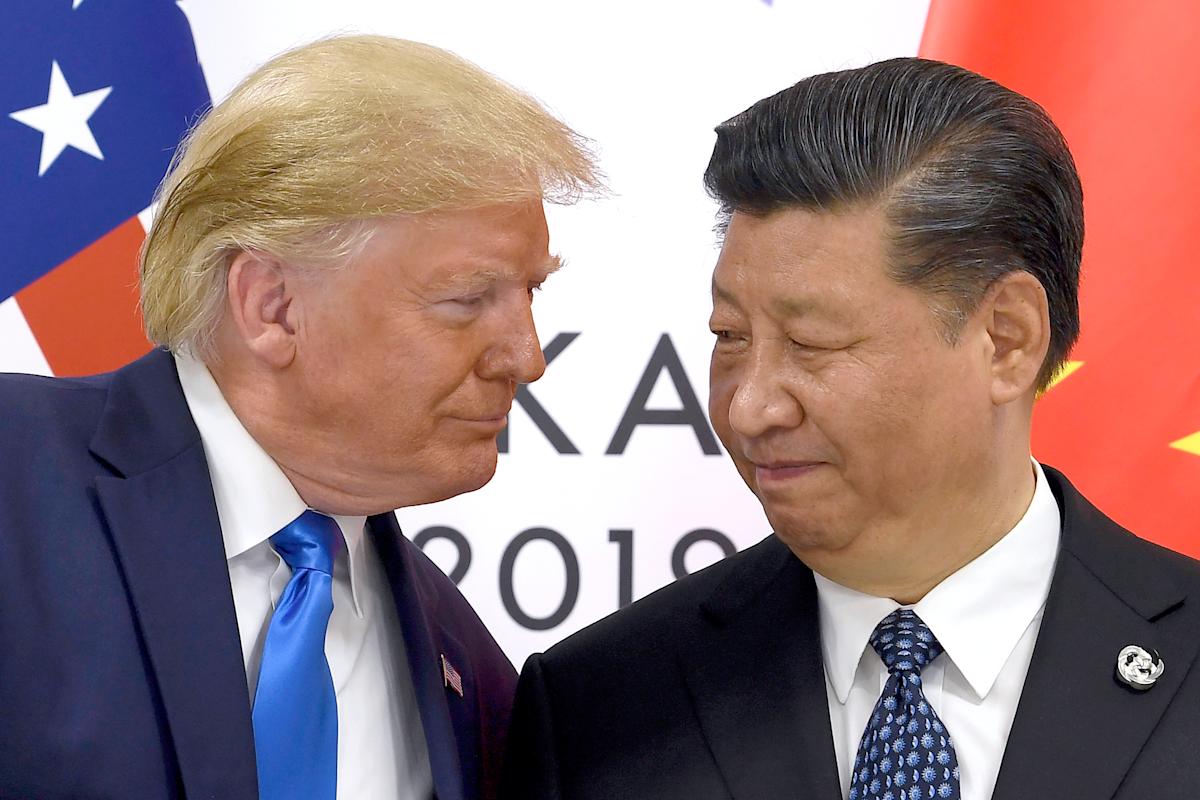The White House is ready to ease tariffs on the US auto industry, delivering a major win for carmakers who have lobbied to reduce the fallout from higher import duties.
The Commerce Department is set to announce a five-year extension that allows automakers to reduce what they pay in tariffs on imported car parts, according to people familiar with the matter.
The US budget deficit declined for the 2025 fiscal year due to tariff revenue hitting a record high. The deficit fell 2% for the fiscal year and was $1.78 trillion, down from $1.82 trillion in 2024, according to figures released by the Treasury department on Thursday.
Trump on Wednesday confirmed that trade tensions with China remain high, telling a reporter who asked whether the two countries are headed for a prolonged trade war, “Well, you’re in one now.”
The president’s comments came despite Treasury Secretary Scott Bessent suggesting that an extension of the tariff pause between the US and China was possible — and that Trump still plans to meet with Chinese President Xi Jinping later this month.
Over the past week, relations between the two countries have become increasingly strained, though both sides have sent mixed signals about just how serious the fallout could be.
China accused the US on Thursday of causing “panic” over Beijings export controls on rare earth materials, according to a report in China’s state newspaper the Global Times.
Last Friday, Trump said the US would impose an additional 100% tariff on Chinese goods starting on Nov. 1 over Beijing’s plan to impose new export controls on rare earth minerals.
Since then, however, China sanctioned US units of a South Korean shipping company, while Trump threatened to further curtail trade with the country in response to its halt of US soybean purchases.
Read more: What Trump’s tariffs mean for the economy and your wallet
US tariffs on China of nearly 145% in some cases are on hold until Nov. 10 while the two countries negotiate a larger trade deal. Chinese tariffs on US goods ballooned to 125% before the pause.
Americans are set to pay more than half of President Trump’s tariffs as companies raise prices, according to Goldman Sachs.
Early next month, the US Supreme Court is set to hear a challenge to Trump’s most sweeping tariffs — the “reciprocal” country-by-country duties that you can see in the graphic above. A ruling against the tariffs — which would be in line with lower-court decisions — could have significant ramifications for Trump’s tariff strategy.
New duties on kitchen cabinets and vanities took effect Oct. 1.
Tariffs on timber and certain wood products (like furniture) took effect Oct. 14.
Automaker Stellantis (STLA) has unveiled a $13 billion investment in the US over the next four years and will create 5,000 jobs in a bid to counteract the impact of tariffs.
Apple (AAPL) CEO Tim Cook said he will boost investment in China and further step up cooperation there during a meeting with Beijing’s industry minister on Wednesday, despite threats from Trump to slap tariffs on the iPhone maker’s foreign-made products.
LIVE 42 updates
China: The US is ‘creating unnecessary misunderstanding and panic.’
China has accused the US of causing “panic” over Beijings restrictions on rare earth materials. According to China state newspaper the Global Times. Ministry of Commerce spokesperson He Yongqian said that the US is exaggerating “China’s measures” and “deliberately creating unnecessary misunderstanding and panic.”
These latest comments from China follow a week long war of words between Washington and Beijing, which began with China restricting rare earth exports, followed by Beijing announcing it will investigate US chipmaker Qualcomm (QCOM) and placing restrictions on Nvidia (NVDA) chips. President Trump responded last week Friday and said he would put an additional 100% tariffs on China.
“The US has long exercised extraterritorial jurisdiction – it began decades ago,” she continued. “Since 2022, Washington has repeatedly imposed semiconductor export restrictions targeting China, abusing the ‘foreign direct product rule’ and zero-threshold content rules to pressure other countries into containing China,” Yongqian said.
“The accusations from the US reveal that the US is projecting its own behavior onto others. Safeguarding global supply chain security and stability requires joint efforts from all nations, including the US.”
China has indicated that they are open to talks, despite Trump confirming this week that this is a trade war.
Bessent slams China on rare earths but says extending pause on tariffs is possible
Yahoo Finance’s Jennifer Schonberger reports:
